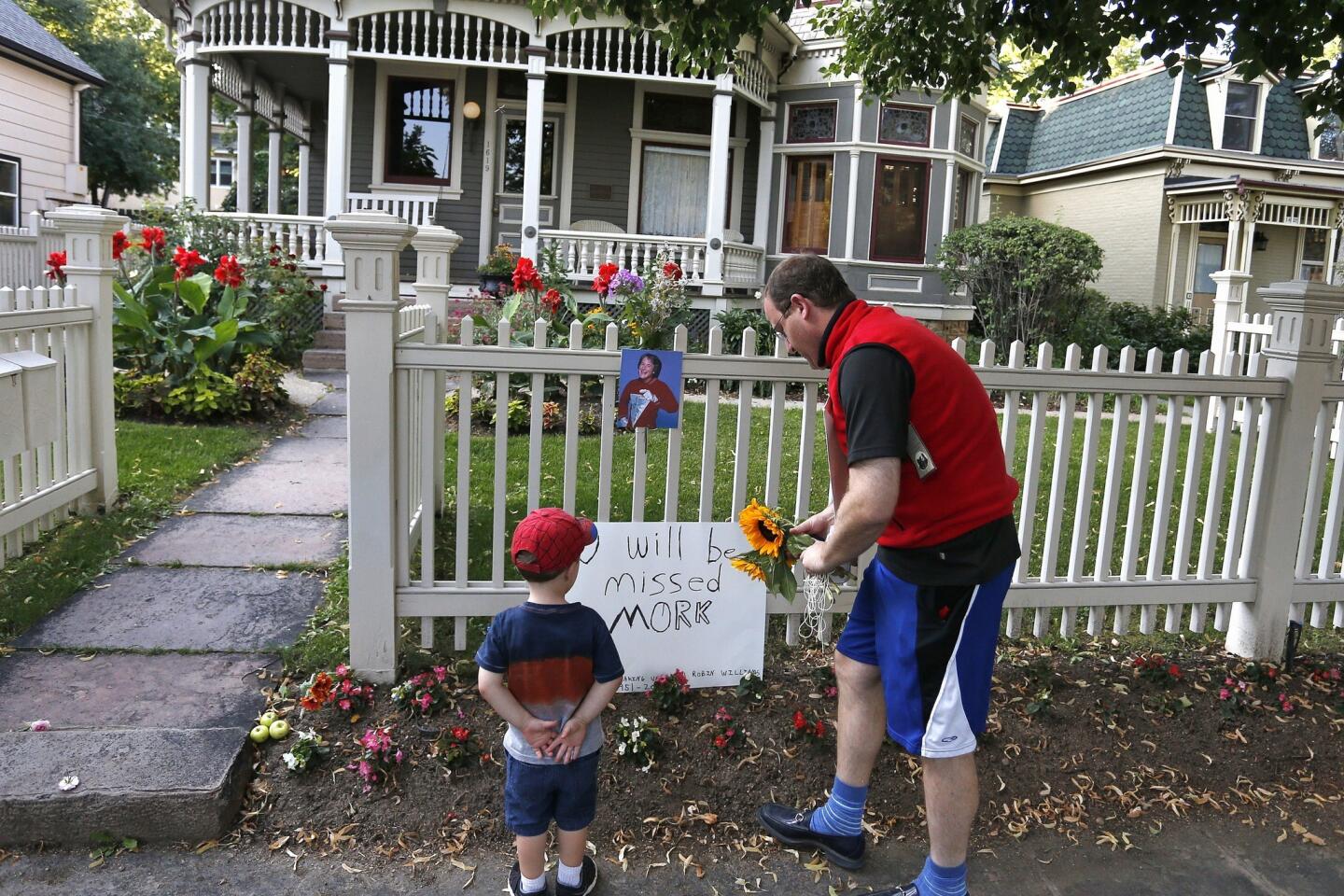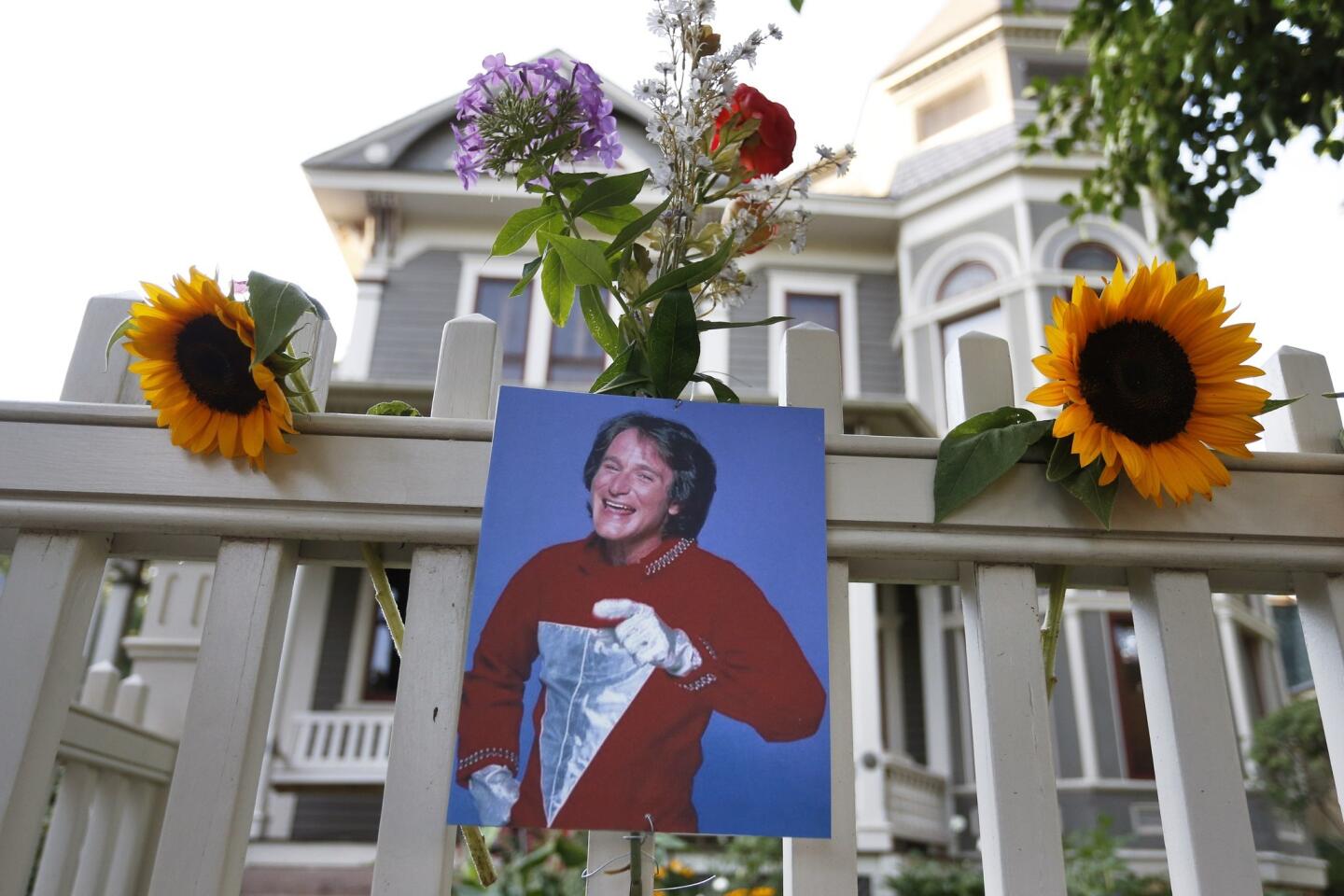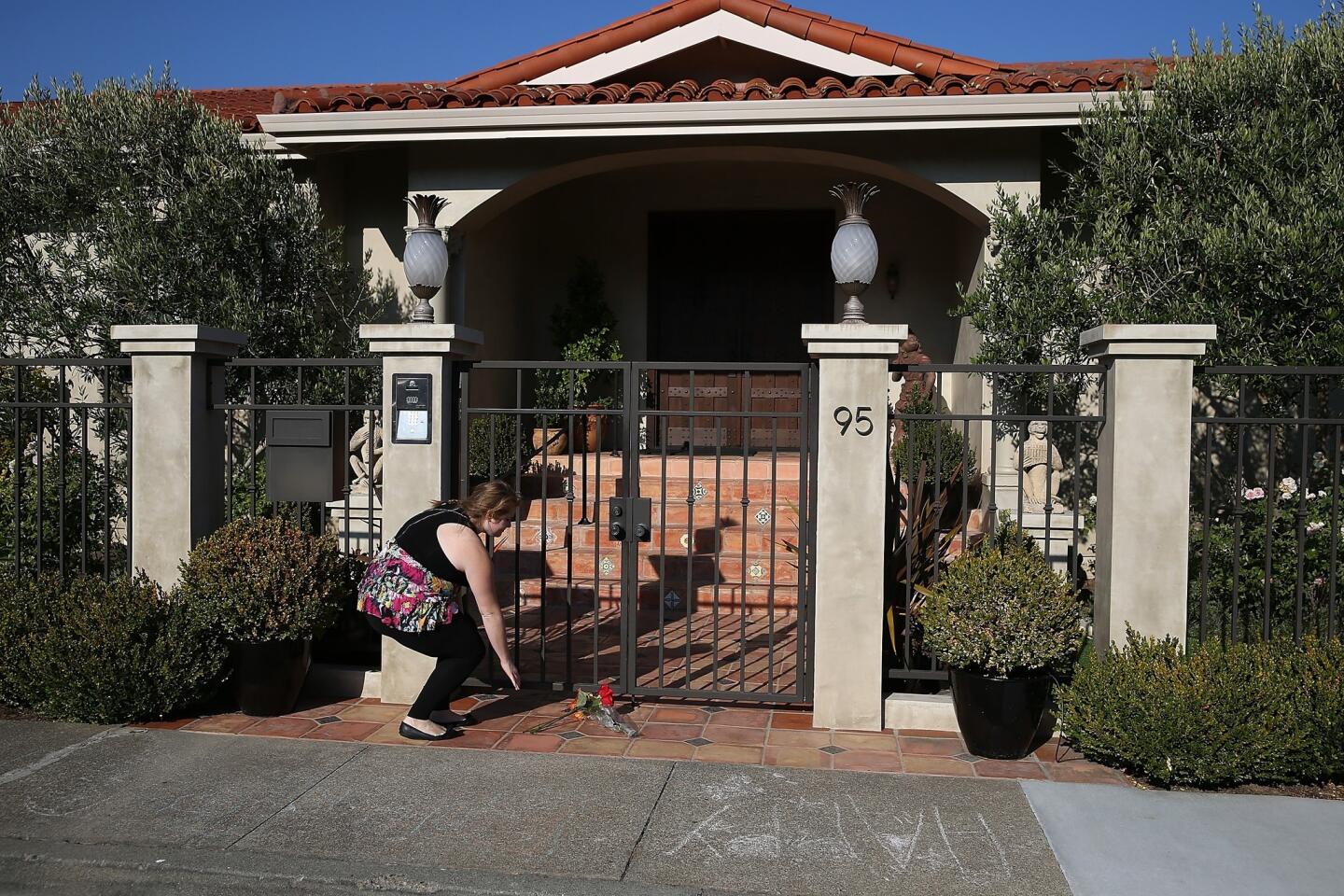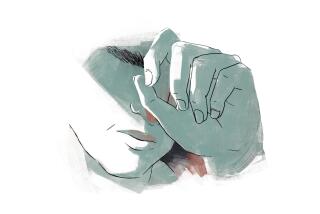Robin Williams: How to recognize suicide signs, where to get help
- Share via
Friends of comedian Robin Williams, who died Monday at age 63 in an apparent suicide, urged the public Monday to seek help if they have suicidal thoughts and encouraged friends to stay alert to any warning signs of depression.
“Robin was as sweet a man as he was funny,” comedian Jimmy Kimmel said on Twitter. “If you’re sad, please tell someone.”
The “romantic notion” that suicide is caused by one diastrous change in someone’s life is almost never the case, said Roderick Shaner, medical director for the Los Angeles County Department of Mental Health. More than 90% of people who commit suicide have previously struggled with substance abuse, psychotic disorders or depression, and the majority of those who seek help are treated successfully.
“A bad turn of events that occurs is more likely to be a trigger of suicide, rather than the cause of it,” Shaner said.
The most important indicator to watch for, he said, and “the one that is most often ignored,” is whether someone has discussed ending their life, especially if they have not discussed it before. If the person approaches the topic with ambivalence, he said, that should still be a warning sign.
Other key factors that can indicate suicidal thoughts include:
- A history of suicide attempts
- A pattern of substance abuse, particularly if someone has recently relapsed after a period of sobriety.
- Expressing a sense of hopelessness, including saying that their problems are insurmountable or that people would be better off without them. “Hopelessness often prevents people from seeking help, because they believe that help would be pointless,” Shaner said. “That is never the case.”
- Signs of depression. These can include, but aren’t limited to, fatigue, insomnia, apathy toward daily activities, sudden weight changes, loss of attention span, or uncontrollable anger or sadness.
- Sudden calmness, especially for those who have contemplated suicide before. “Sometimes that indicates that someone has wrestled with the idea of suicide, and made a decision to end their life,” Shaner said.
- Setting affairs in order. Someone who has displayed any of the previous behaviors and is suddenly interested in straightening out their finances or writing a new will may be contemplating suicide, Shaner said.
Friends and family who notice those warning signs should “keep lines of communication open” and should encourage their loved one to seek treatment, Shaner said.
“Be present to support them, not stigmatize them,” he said. “Constantly remind them that help is available. If necessary, reach out yourself to get them that help.”
Anyone who is contemplating suicide should reach out to loved ones and trusted professionals with mental health training, including physicians, therapists, counselors and clergy, said Dr. Karen Miotto, director of the UCLA Semel Institute’s Alcoholism and Addiction Medicine Service.
For those who don’t want to consult someone they know, there are several suicide hotlines available 24 hours a day, including:
- The Suicide Prevention Center: (877) 727-4747
- The National Suicide Prevention Lifeline: (800) 273-8255
- The Los Angeles County Department of Mental Health crisis intervention line: (800) 854-7771
- Crisis Text Line: For those who prefer not to call, text LISTEN to 741741
Local crisis intervention numbers for other counties in California are available here.
“There’s a fear that somehow, if you talk about suicide, you’ll be putting the thought in people’s minds,” Miotto said. “If someone close to you is depressed or in a state of despair ... help them seek mental health attention.”
For more news, follow @laura_nelson on Twitter.
More to Read
Sign up for Essential California
The most important California stories and recommendations in your inbox every morning.
You may occasionally receive promotional content from the Los Angeles Times.






















